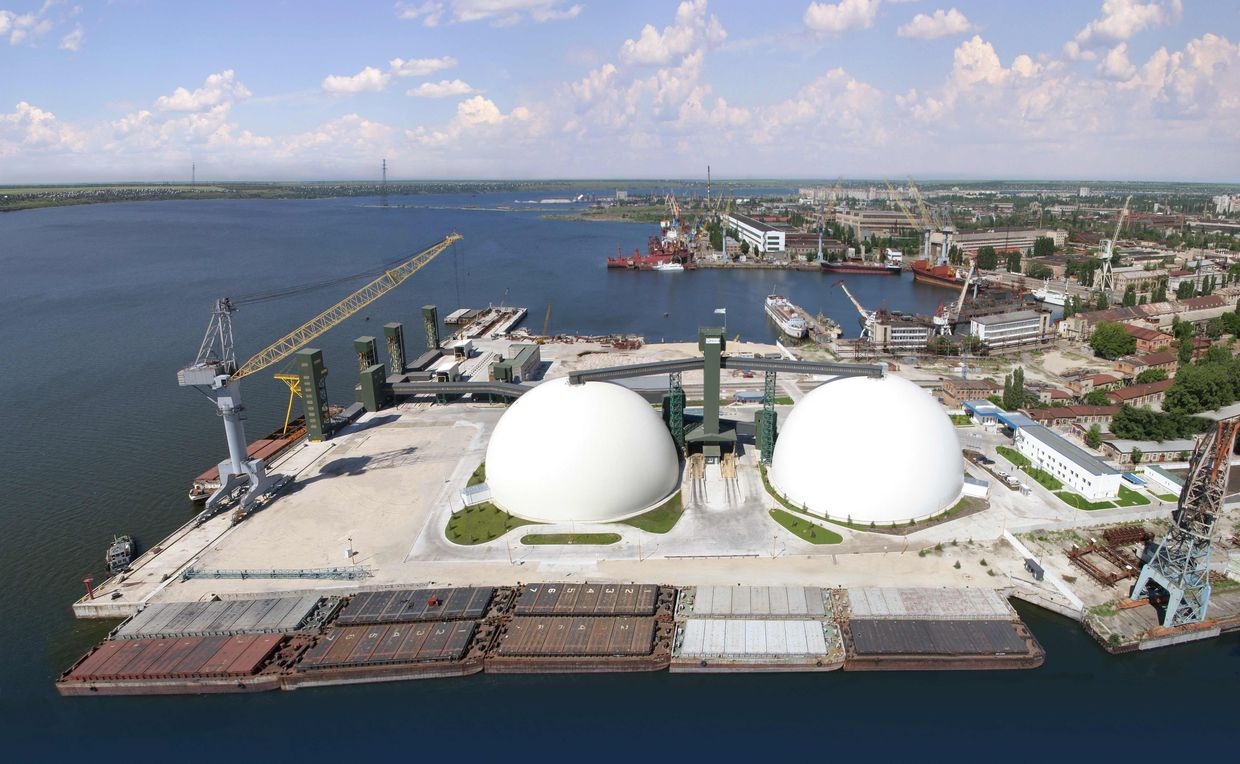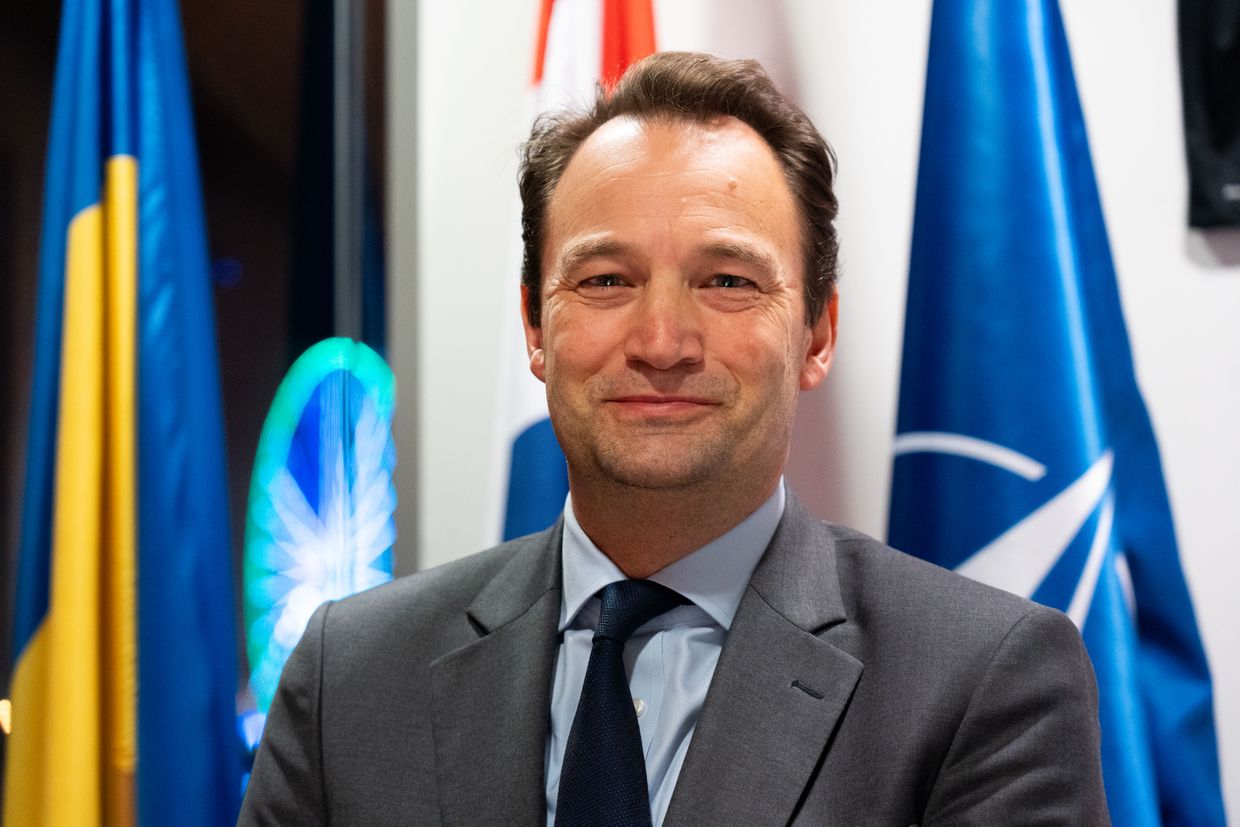Dominic Culverwell: Ukrainian businesses need foreign investment ASAP

On a trip to Mykolaiv in November, I passed an electronics store covered in shrapnel damage. I had assumed it was closed down — another victim of Russia’s attempted siege the previous year. Missing steps led to a door boarded up with plywood while a battered Apple logo clung to the storefront.
I was therefore taken aback when a couple entered, revealing a fully functioning store filled with phones, laptops, smartwatches, and headphones. Even with Russian positions less than an hour's drive away, Ukrainian businesses have found ways to stay open.
But they need help. The economic front took a backseat in the early months of the full-scale invasion, but its importance is only growing by the day.
With future funding from allies now uncertain and the state budget deficit estimated at Hr 1.47 trillion ($44 billion) this year, Ukraine’s private sector must step in to keep the country afloat through tax contributions and employment while the government’s fiscal efforts focus primarily on the war.

I’ve spoken with numerous business leaders and financial chiefs who have all told me the same thing: Ukrainian companies need investments, not just financial aid. While the latter is important, foreign investors are more likely to inject larger sums of money into Ukraine, helping its economic revival.
There are obvious risks while the war is ongoing, but foreign investments will ensure that Ukrainian businesses can stand on their own two-feet in the long run as well as forge relationships with international companies. If successful, the rewards for both parties will be high, particularly for those who get in early.
Andriy Vadaturskyy, the CEO of agricultural giant Nibulon, made it clear that he will remember those who helped his company during the war rather than waiting for peacetime. This loyalty will not be forgotten. Aside from the clear moral argument supporting Ukraine’s private sector, it’s also good for foreign businesses.
Ukrainian companies want to be self-sustainable, not constantly begging for donations. With reconstruction costs estimated to be around 411 billion euros ($449.9 billion), Ukraine will need to partially pay for this itself, which will have to be a joint effort from both the public and private sectors.
The International Finance Corporation (IFC) — the investment arm of the World Bank — believes that if Ukraine manages to reform some of its key sectors and liberalize its markets, it could raise $130 billion in private-sector investments, roughly a third of reconstruction costs.
Kyiv is aware that there is a finite amount of money from the U.S. and the EU. Tensions are also growing in allied countries as the war drags on and its impact is felt beyond Ukraine’s borders amid a growing cost of living crisis.
Foreign entities willing to work with Ukrainian companies will bolster not only Ukraine’s economy but also provide jobs and income to the countries investing, easing the fiscal pressure on Ukraine’s allies and building fruitful commercial connections post-war.
I saw this first hand in Mykolaiv Oblast where Denmark has paved the way for foreign investments under its Export and Investment Fund (EIFO). One war-damaged agricultural company (who asked they not be mentioned by name) will purchase new equipment from a Danish manufacturer thanks to a loan from EIFO, ultimately benefiting all parties involved and cementing a commercial relationship.
While some foreign investors and nations have already taken the plunge, they need to come quicker. Kaare Andreasen the Finance Director of EIFO warned that allies are making the same mistakes as with the delayed tanks and jets, and should not wait until the war is over before investing.
Countries like the U.K. and Denmark, as well as banks such as the European Bank for Reconstruction and Development (EBRD), have developed war risk insurance projects to mitigate hesitancy. Still, the images of violence and bloodshed imbue the visions of those hesitantly watching Ukraine from afar, even if they often do not correspond to the reality on the ground in most cities where life carries on as normal.
Those who are following more closely have a more realistic view and see that Ukrainian companies have adapted remarkably and are eager to grow. Some, like Danish businessman Brian Karsten, also see an opportunity for Ukrainian businesses to break into previously difficult-to-access foreign markets, having found success importing Ukrainian food and drink to his homeland.
Organizations like EIFO and the IFC are confident that many of Ukraine’s key businesses will be profitable, particularly in agriculture, tech, and infrastructure. Even small investments instill confidence and lay the groundwork for bigger ones.
At the same time, business-savvy Ukrainians are continuing to register small and medium-sized companies (SMEs) following major job losses at the start of the full-scale invasion, in part thanks to help from government projects such as the eRobota program. But the government can only offer so much money and foreign investors should not overlook smaller entrepreneurs either.

Already small-scale farmers have been left behind while money flows into large agricultural giants as the profits will be greater and bigger companies make up the majority of food exports. One farmer in Poltava Oblast I spoke to last summer, expressed concern that he would have to give up his land to large agricultural companies as he is struggling to sustain his own farm.
Long gone are the grim Soviet days of prosaic products. Entrepreneurial Ukrainians, of which there are plenty, will more likely stay in the country if they see opportunities to innovate. With financial support from international partners, they can help combat Ukraine’s biggest post-war threat: population decline.
Over six million Ukrainians are living abroad, many of them educated specialists who are planting roots in their host countries the longer the war wages. This has left Ukraine struggling to fill job vacancies and the Economy Ministry noted that the country needs some 4.5 million workers over the next 10 years to revive the economy.
This is particularly true for businesses in front-line regions, which have seen the largest population depletion. Many businesses in Ukraine’s south and east, the industrial heartland of Ukraine, have suffered tremendous financial losses and lack the capital to rebuild by themselves.
While refugees and displaced people list security against Russian attacks as their top priority for returning, job opportunities are not far behind. People coming back need reassurance that good jobs are waiting for them but this can only be done if foreign investments help keep companies and innovation alive.
Editor’s Note: The opinions expressed in the op-ed section are those of the authors and do not purport to reflect the views of the Kyiv Independent.















